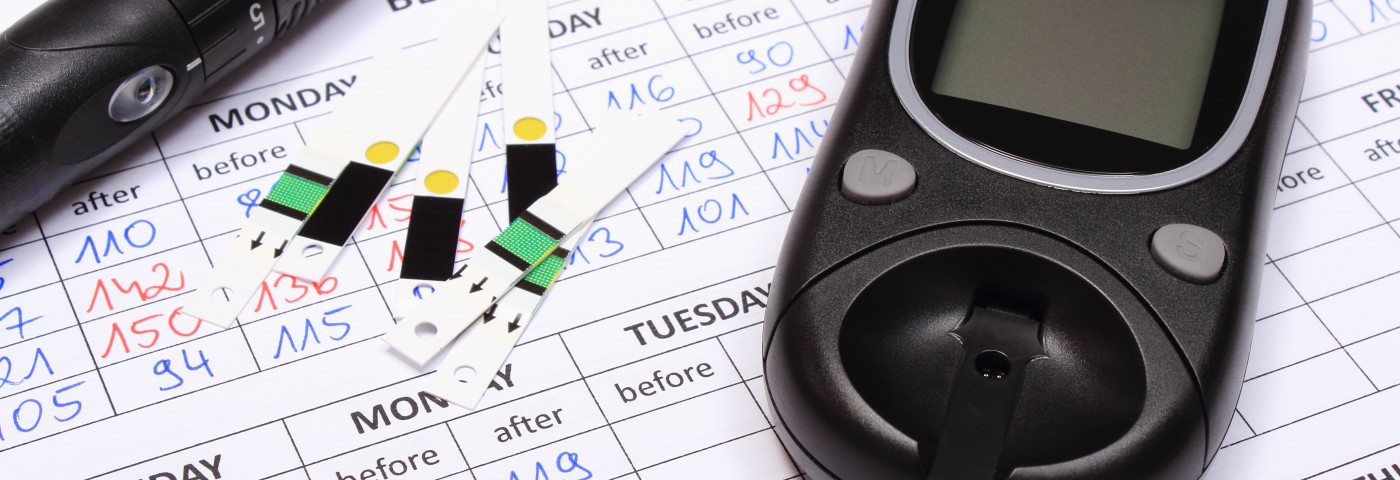Ascencia Diabetes Care, a company specialized in blood glucose monitoring systems (BGMS), presented data about three of its products at the American Diabetes Association (ADA)’s 76th Scientific Sessions, June 11-4, in New Orleans.
Usability of a new BGMS with a mobile app
Dr. Timothy Bailey, of the Advanced Metabolic Care + Research (AMCR) Institute in San Diego, and colleagues tested the usability of Ascencia’s Contour Next One BGMS with a newly developed app. The system sends blood glucose levels wirelessly to an app installed on a smart phone or tablet.
The app builds graphs that allow users to view trends in blood glucose levels, and use the built-in bolus calculator.
Enrolled in the study were 43 type 1 or type 2 diabetes patients under insulin therapy. Participants were taught how to use the system and then asked to use it at home for three weeks. At the end of the three-weeks, more than 95% of the participants were able to sync their meter with the app and to access and interpret the blood glucose displays.
Almost all participants (98%) found that the blood glucose displays were understandable, and nearly 90% were able to initiate and use the bolus calculator feature.
The team concluded that the BGMS and app are easy to use in the hands of people with diabetes.
“This study is the first to assess the system’s ease of use. Tools, such as the CONTOUR Diabetes App, may help more people with diabetes and those who care for them to spot important patterns and trends, with the potential to lead to better health outcomes,” Bailey said in a press release.
Accuracy evaluation of six BGMS used with insulin pumps
In another study, researchers evaluated the accuracy of six different BGMS that are often used with insulin pumps. The team took capillary blood samples from 100 participants with diabetes, measured the samples three times with each BGMS, and compared the results using two different methods. Researchers then assessed the results according to the International Organization for Standardization (ISO) accuracy criteria for BGMS.
The results showed that five of the six systems met the criteria set by ISO. The BGMS from Ascencia Diabetes Care, called Contour Next Link 2.4, also met more stringent accuracy criteria.
First author Dr. Guido Freckmann, from Institut für Diabetes-Technologie Forschungs and Entwicklungsgesellschaft mbH said: “Meter accuracy is particularly important for insulin pump users, as the blood glucose values are directly used to calculate the required insulin dose from the pump and to calibrate the continuous glucose monitoring sensor. High levels of accuracy are important to ensure pump users have safe and appropriate therapy.”
Systems tested were Accu-Chek Aviva Nano, Accu-Chek Mobile, Accu-Chek Performa Nano, Contour Next Link 2.4, FreeStyle Lite, and OneTouch Verio IQ.
Accuracy of four systems for self-monitoring blood glucose in the hands of patients and professionals
Finally in the third study led by Freckmann, the accuracy of four systems of self-monitoring of blood glucose was assessed. According to ISO accuracy criteria, systems for self-monitoring blood glucose must fulfill the same accuracy limits in the hands of patients and professionals.
All 100 enrolled participants were taught how to use the systems. Study personnel then observed the participants while taking measurements and they documented mistakes. The study personnel also performed measurements using two comparison methods.
Two out of the four systems, Accu-Chek Performa and Contour Plus, met the accuracy criteria regardless of the comparison method, while one system, OneTouch SelectSimple did not meet the criteria at all. The third system, Accu-Chek Active, only met the criteria of one comparison method.
The researchers concluded that “manufacturers should ensure an adequate accuracy in the hands of users by reducing potential error sources.”
Michael Kloss, CEO of Ascensia, concluded: “The data from these studies shows our ongoing commitment at Ascensia Diabetes Care to scientific research and bold innovations that are aimed at offering new solutions to the diabetes community.”


